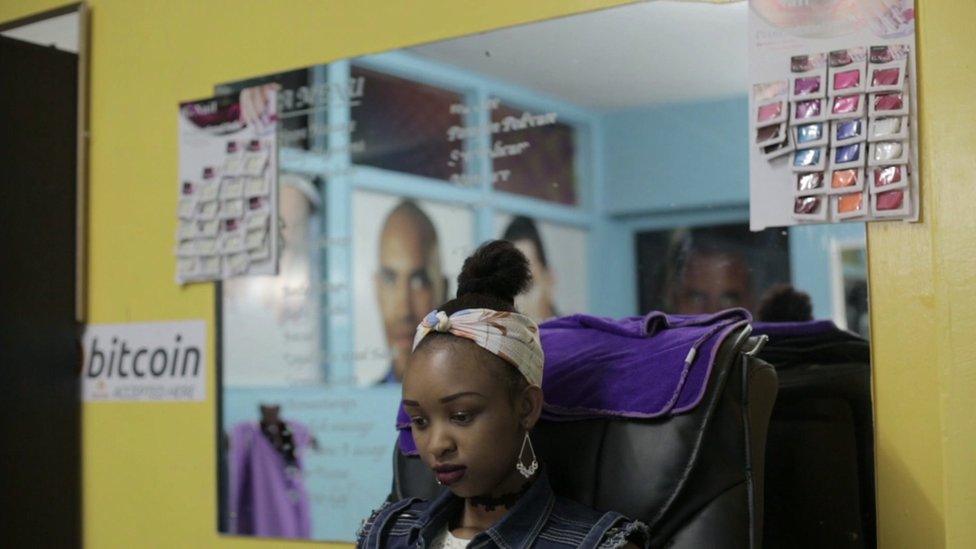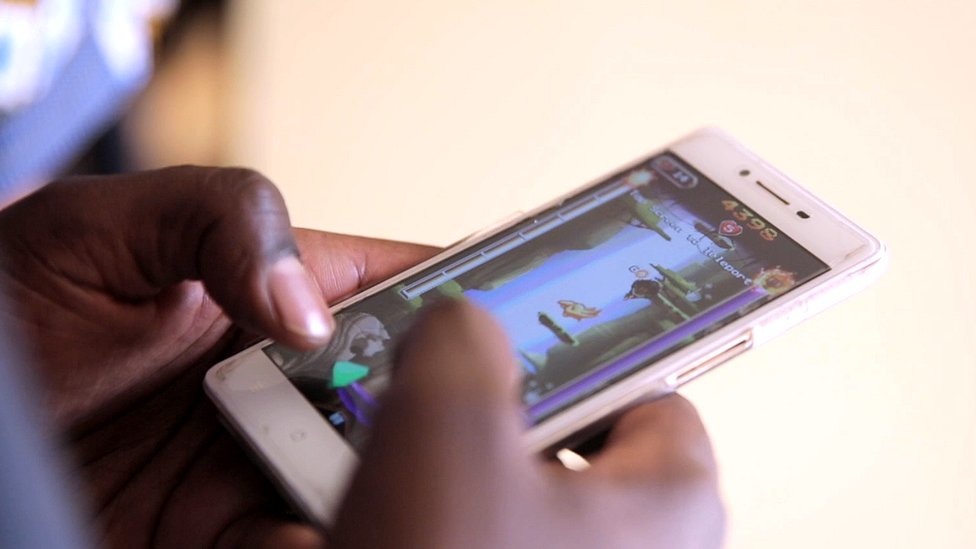The challenge in developing start-ups in Africa
- Published
A device for scaring elephants away
African entrepreneurs are starting to attract foreign investment, but many challenges still need to be solved.
In 2017, $560m was invested in African start-ups, according to Partech Ventures.
South Africa received 30% of the funding, Kenya received 26% and Nigeria received 20%.
At least 87% of the funding went to technology firms focused on developing new online, mobile and financial services.
All that innovation comes from the 442 tech hubs based across the continent.
The GSMA - which represents the global mobile industry - says that the number of technology hubs in Africa has doubled since 2016, external, and the growth of these organisations shows no signs of slowing down.
Many technology hubs are found in big cities, such as Nairobi in Kenya, which is considered to be Africa's "Silicon Savannah".
But many rural areas are now developing resources to help young entrepreneurs too.
David Ogiga is the founder and chief executive of Sote, a technology hub based in Voi, a small town more than 300km southwest of Nairobi.
Sote was founded as a way to provide technological support to rural schools, but it eventually became an incubator for young entrepreneurs.
"We had three very good young people who are very skilled in business, but they lacked space where they could do incubation," Mr Ogiga told the BBC.
"Investors are almost unimaginable because of the distance from Nairobi, but the reality is that we have fantastic ideas coming out of this place."
Start-ups at Sote are working on technologies to solve truly African problems - such as developing a gadget to scare away elephants so they don't cause damage to homes and risk being killed.
Changing mindsets
Although foreign investment is coming in, a lot of work still needs to be done to improve the infrastructure in many African nations, to say nothing of improving access to capital and encouraging favourable government policies.
But there is an even bigger challenge standing in Africa's way - traditional cultural mindsets.
"One of the biggest challenges for young entrepreneurs in Africa is the value system in Africa. We're moving to a digital space and new economies, and most of these economies depend on trust," Sam Gichuru, founder and chief executive of Nairobi-based start-up incubator Nailab told the BBC.
Doing business face-to-face is one thing, but many African cultures are distrustful of e-commerce because it requires doing business with someone you've never met before, and trusting that they will deliver goods that are exactly as promised.
"We must create value systems that uphold a high level of ethics, integrity and discipline," explained Mr Gichuru. "Contracts need to be upheld and respected."
China is just as big as Africa, and it has a single market.
It would be great for Africa to have a single market too, but this will take some time, and a lot of work on cohesion between the nations.
"We will see better ideas coming over the next 10 years. With Africa you have to understand - we are 54 countries, 54 different telecoms networks, 54 different ways to pay taxes - it's insane," said Mr Gichuru.
"Finding ways to build one big market - that's one of the bigger ways we can bring our people out of poverty."
- Published22 February 2019

- Published31 January 2019
